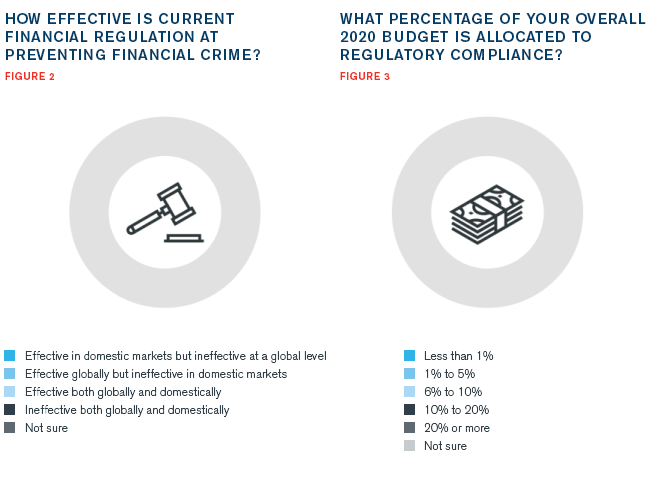
You can be a consultant analyst with a wide range of responsibilities, including analyzing data, developing recommendations, and presenting findings and conclusions. You'll manage analysts across different sectors, as well as develop core consultancy skills and sector-specific knowledge. Regardless of your educational background, there are numerous benefits to this role. Continue reading to find out more. Here are four main advantages:
Titles interim
Although job titles in consulting are very simple and have remained constant over the decades, many organizations offer interim titles to their analysts as well. These titles are either unofficial or official, but they can be helpful in visualizing the career path for consultants. These titles are usually given at the top or bottom of a consultant’s career ladder. Here's a look at the way interim titles are awarded. What does an interim title mean?
As the analyst grows in experience and expertise, he/she might move up to a senior position. An analyst may be an A1 or a A2, but at other companies they might be an A2 and an A3. Analysts may be given interim titles to indicate their career progression. As they grow in seniority, some analysts will assume greater responsibility. Other titles that may be used to describe consultants include Project Managers (Business Analysts), Functional Analysts (IT Leads), and even a CEO.

Salary
The salary of a consultant analyst can range widely, but generally falls within the range of $50,000 to $90,000 per year. Apart from the preparation of reports and other documents, consulting analysts can also suggest services to other consulting firms, such project management, training, or other services. This may lead to increased revenue for the firm and stronger relationships with clients. PayScale reports that in 2020 the median annual salary for advisory analysts will be $71,024 While earnings can range from $51,000-$84,000, reported salaries have been over $100K in recent years.
A variety of factors influence the salary of a consulting analyst. These include experience, location, and other factors. An experienced consulting analyst is paid more than a recent graduate. A key factor is location, since higher salaries are associated with greater metropolitan areas. In addition, a consultant analyst salary is usually correlated with the cost of living in the area. A MBA may be a good option for those looking for high-paying jobs in Brooklyn, NY.
Environment for work
Consultant analysts typically work in an office environment. However, some positions may require traveling. Most consultant analysts work in an office. Although the job is demanding, many people find it stimulating and challenging. Consultant analysts typically work between 40 and 50 hours a week, but some positions may require more travel. You will need to have strong statistics and mathematics skills in order to be successful in this field.
Although the work environment for a consultant analyst is often similar to that of an accountant, many analysts begin their careers with several years of experience in a different field. Consultant experience is varied. Companies often look for candidates with more relevant experience to help them find the right job. A consultant analyst job is often open to market researchers, computer system analysts, and accountants. Once hired, analysts work in a variety of settings and are required to take the lead in implementing business-oriented initiatives.

Education Required
To become a consultant analysts, you do not need a postgraduate diploma in business administration. But, a Masters degree is helpful. These courses are often available online. Employers will also consider candidates with relevant work experience. Most consultants have business or technical experience. A degree in a related field can help them get their first job. Several large consulting firms will even accept recent college graduates for trainee schemes.
In addition to a bachelor's degree, management analysts often hold a master's degree. Many companies prefer to hire people with a master's in management. As the consultant grows in experience, he or her will assume more responsibility. Some will manage large teams and others will help bring in new business. Senior consultants often move into management positions in non-consulting firms. MBAs are desirable qualifications.
FAQ
Do I need legal advice?
Yes! Yes. Many consultants sign contracts without seeking legal advice. However, this can lead to problems down the road. What happens if the client cancels the agreement prior to the consultant's completion? Or, what happens if the consultant doesn't meet the deadlines set forth in the contract?
Avoid any legal issues by speaking with a lawyer.
What qualifications are required to become a consultant?
It doesn't suffice to hold an MBA. You also need to be able and willing to work as a business advisor. You should have at least two years of experience in consulting and/or training for a major company.
You must have worked closely with senior management teams on strategy development projects. This requires you to feel confident presenting ideas to clients, and getting buy-in.
A professional qualification exam, such as the Certified Management Consultant (CMC), of the Chartered Management Institute (CMI), is also required.
How did modern consultancy come about?
Consultants were originally accountants who could help companies manage their financial affairs. They became known as "accounting consultants." This was because they had become very skilled at managing financial information. They soon expanded their roles into other areas like human resources management.
The French word for "to advice" was the inspiration behind the term "consultant." This was used by businessmen as a way to describe someone who could provide guidance on running an organization. In fact, most business owners today still use the word consultant when referring to any kind of professional advisor.
What are some of the advantages to being a Consultant?
As a consultant, you can usually choose when you work and what you work on.
This allows you the freedom to work wherever you like, whenever you want.
You also have the freedom to change your mind at any time without fearing losing your money.
Finally, you are able to manage your income and make your own schedule.
How do you choose a consultant to help me?
There are three key factors to be aware of:
-
Experience - How experienced is the consultant? Is she an expert, beginner, intermediate or advanced consultant? Is her resume a proof of her skills and knowledge?
-
Education - What did this person learn during school? Did he/she go on to further education after graduation? Were there any evidences of this learning in his/her writing?
-
Personality - How do we feel about this person? Would we hire him/her to be our employee?
-
The answers to these questions help determine if the consultant is right for our needs. If there are no clear answers, then it might be worth an initial interview to learn more about the candidate.
What is the difference between a consultant and an advisor?
An advisor provides information about a topic. A consultant provides solutions to problems.
To help clients achieve their goals, a consultant works directly with them. An advisor advises clients indirectly through books, magazines, lectures, seminars, etc.
What is the cost of hiring a consultant?
There are many factors that go into the cost of hiring a consultant. These factors include:
-
Project size
-
Time frame
-
Scope of work
-
Fees
-
Deliverables
-
Other considerations like experience level, geographical location, etc.
Statistics
- WHY choose me: Why your ideal client should choose you (ex: 10 years of experience and 6-week program has helped over 20 clients boost their sales by an average of 33% in 6 months). (consultingsuccess.com)
- Over 50% of consultants get their first consulting client through a referral from their network. (consultingsuccess.com)
- 67% of consultants start their consulting businesses after quitting their jobs, while 33% start while they're still at their jobs. (consultingsuccess.com)
- My 10 years of experience and 6-step program have helped over 20 clients boost their sales by an average of 33% in 6 months. (consultingsuccess.com)
- On average, your program increases the sales team's performance by 33%. (consultingsuccess.com)
External Links
How To
What should I do to get started with a consulting business?
It's a great way for you to make money online by starting a consulting company. No prior business experience is required. It is possible to create a website to launch your consulting business. After you have built a website, social media platforms such Instagram, Pinterest and LinkedIn will be useful to spread the word about your services.
You can create a marketing strategy that includes these things with these tools
-
Creating content (blogs)
-
Building relationships (contacts)
-
Generating leads through lead generation forms
-
Selling products on e-Commerce websites
Once you have created your marketing strategy you will need to find clients that will pay for it. While some people prefer to attend networking events and groups, others prefer online methods like Craigslist, Wikijiji, or Kijiji. Your choice is yours.
Once you have a new client, you need to discuss terms. You can discuss hourly rates, retainer agreements, flat fees, and other options. It's important to know what you expect before accepting a client so you can communicate clearly throughout the process.
Hourly agreements are the most common contract type for consultancy services. You agree to offer certain services at a fixed fee each month or every week. You might be able, depending on which service you offer, to negotiate a discount. Before you sign a contract, ensure you understand everything.
Next, create invoices and then send them to clients. Invoicing is one those things that seem so simple until you actually do it. There are many ways that you can invoice your clients depending on what your preferences are. Some people prefer to email their invoices directly, while others prefer to mail them hard copies. No matter what you do, make sure it works!
After creating invoices are complete, you will need to collect payments. PayPal is preferred by most people because it is simple to use and offers many payment options. Other payment processors such as Square Cash. Google Wallet. Apple Pay. Venmo.
Once you're ready and able to collect payments, you should set up bank accounts. Having separate checking and savings accounts allows you to track income and expenses separately. When paying bills, it is also beneficial to set up automatic transfer into your bank account.
When you start a consultancy business, it may seem overwhelming, but once you learn how to do it correctly, it becomes second nature. Our blog post contains more information on how to start a consulting business.
You can make extra money by starting a consulting company without worrying about staff. Consultants can work remotely so they don't have the hassle of dealing with office politics and long working hours. Being able to work remotely allows you more freedom than traditional employees.